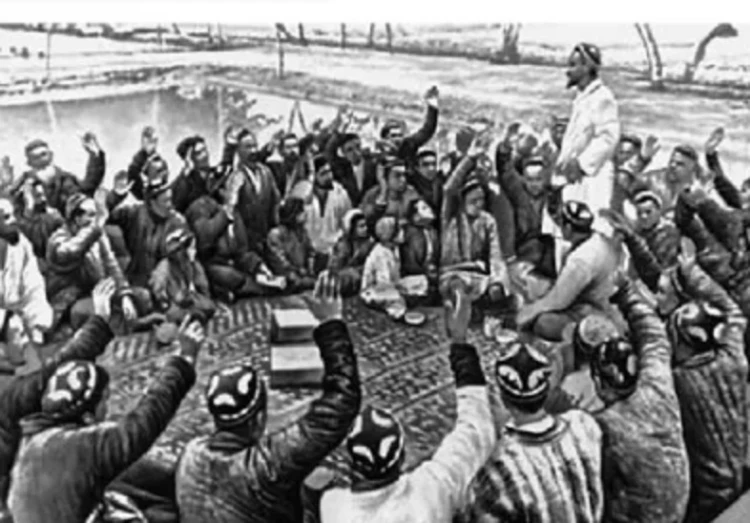The Andijan Uprising of 1898: The Roots of Popular Anger
The unpredictable and capricious nature for which Kurmandzhan Datka was known astonishingly combined with the sober calculation and wisdom of a far-sighted strategist. This is evidenced by a fact from the biography of the Alai queen, when her warning once saved tens of thousands of her tribesmen from certain death. This refers to an act that prevented many Alai people from participating in the infamous Andijan uprising of 1898.
As is known, this mass unrest of separatists engulfed a significant part of the Fergana Valley at the end of the 1890s. The uprising, which had a distinctly anti-colonial character, was carried out under the slogans of jihad, or "holy war." The latter was partly due to some miscalculations made by the Russian colonial administration since the conquest of Kokand. As contemporary Uzbek researcher B.M. Babadjanov writes in one of his works, the local
Islamic clergy took a dual position after the fall of the khanate. Most of its representatives formally reconciled themselves to the inevitability of the situation.
Moreover, it is likely that the clergy would not have incited the congregation against the new authorities if it were not for a number of circumstances that offended the feelings of Muslims. According to Babadjanov, for example, in Friday and holiday khutbahs (prayers - Note by V.P.), by order of the colonial administration, after the usual praises of the Prophet and the first four righteous caliphs, the name "His Imperial Majesty the Emperor" had to be inserted.
In a similar manner, with the tacit consent of this part of the clergy, not only the freedom of worship for laypeople was infringed upon, but also the rights of the clergy. According to Soviet researcher K. Kasimbekov, it was precisely due to the partial sequestration of waqf property of madrasahs and mosques that began in 1895, along with the introduction of usurious loans under the future harvest with the knowledge of the colonial administration, and the abolition of sharia taxes replaced by imperial ones, that there was mass land dispossession of peasants, and many small artisans and traders went bankrupt.
Judging by a number of preserved documents, several officials of the local government anticipated a possible tragic turn of events.
There are many letters and petitions in the archives indicating the inflexible and shortsighted policy of tsarism. However, isolated sober assessments drowned in a sea of enthusiastic publications of that time regarding Russian colonization
of Central Asia, "more gentle and liberal compared to British colonial policy in India."
However, the aforementioned reasons for the uprising can be said to constitute only the "visible part of the iceberg." Since among the organizers of the turmoil were many representatives of the clergy who failed (or did not wish) to integrate into the system of the new power and opposed it. There were particularly many dissatisfied among those whose material situation sharply worsened with the arrival of the Russians.
It is evident that the consolidation of two factions of local clergy representatives would have been unlikely if they had not been prompted to unite by the crude administrative miscalculations of the new authorities. However, the tragic confluence of circumstances that prepared the ground for the uprising is rather a regularity for Central Asia, as repeatedly emphasized by a number of Russian and Soviet historians. In their opinion, the lack of convergence of cultural and ideological positions between the colonizers and the most educated representatives of the local population has always served as a detonator for religious wars in the Islamic East.
Thus, the discontent of Muslims with certain innovations and miscalculations of the colonial administration, which had been brewing subconsciously for several years, was fueled by the radical slogans of a marginal layer of the clergy. All that was needed to start the jihad - the holy war against the "infidels" - was a leader endowed with charisma. And he did not take long to appear...
Attitude towards Kurmandzhan Datka and Shabdan-Baatyr in Central Asia and beyond
Read also:
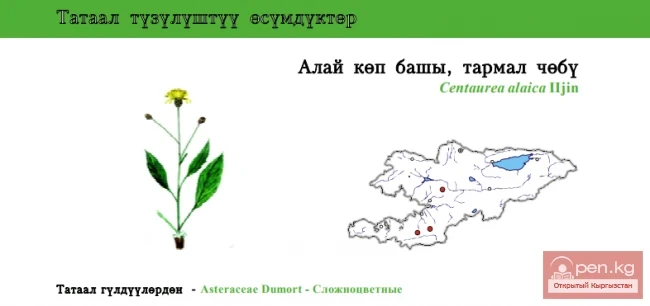
Alai Cornflower / Alai's Many Heads, Thick Stem / Alai Centaury
Alai Centaury Status: VU. Endemic species....

Iskander of Alai / Alai Iskander / Alai Iskander
Iskandera Alai Status: VU. A very rare narrow endemic species. There is only one species of this...
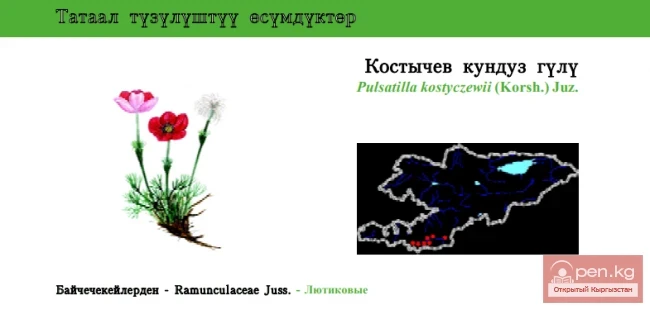
Kostychev's Pasque Flower
Kostychev’s Pascueflower Status: VU. A narrowly endemic and very beautiful plant, deserving...

Alai Bubblefish / Alai Physocline / Alai Physochlaina
Alai Bubblewort Status: VU. A rare narrowly endemic species....
Ordo Sakhna Music from Kyrgyzstan of the Folk Ethnographic Theater
Ordo Sakhna – The Folk Ethnographic Theater. Biography. The folk ethnographic theater Ordo Sakhna...
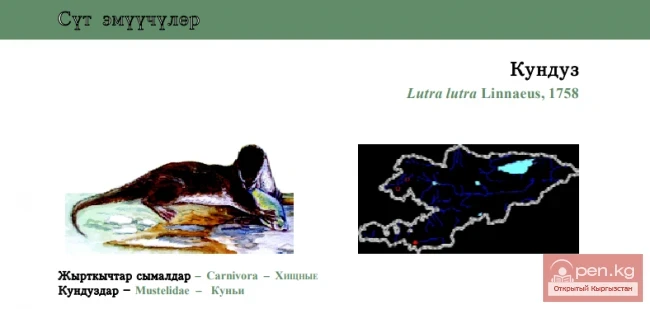
Central Asian otter / Kunduz / Common otter
Central Asian otter Status: III category Critically Endangered, CR: R, Cl. The subspecies Lutra...

A Bishkek Resident Will Appear on the Cover of the Russian Glossy Magazine "Top Asian People"
Bishkek resident Nursultan Alibekov won the online voting of the "Guy of the Month"...

Knorring's Hawthorn / Knorring's Dolenos / Knorring’s Haw-tree
Knorring’s Haw-tree Status: VU. A narrowly endemic species....
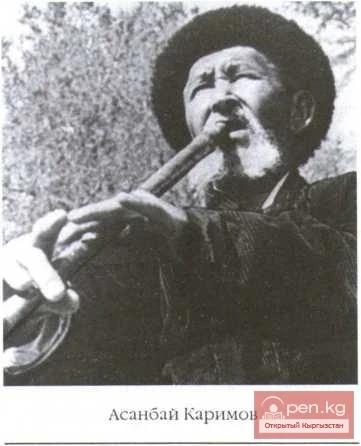
Asanbay Karimov (1898—1979)
Asanbay Karimov (1898— 1979) — an outstanding folk professional choorchu. A self-taught musician,...

Annual Clothing Fair "Made in KG - 2014"
In anticipation of the new school year, from August 21 to August 30, 2014, the annual fair of...
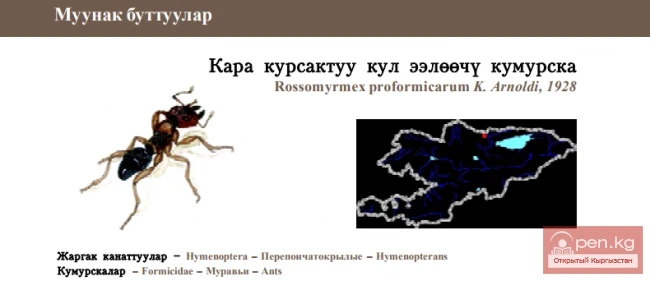
Amazon-Rossomyrmex / Kara kursaktuu slave-holding ant \ Russian Rossomyrmex
Amazon-Rossomyrmex Status: Category II (VUB2ab(iii); C2b; D2). A rare relict representative of the...

Legends of Heavy Metal - SEPULTURA
For the first time in the history of Central Asia! SEPULTURA Legends of heavy music, founding...
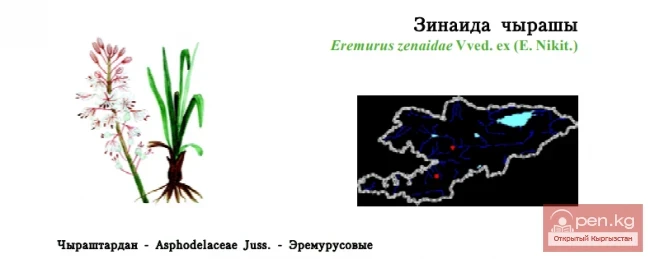
Zenaida's Foxtail Lily
Eremurus Zenaidae Status: VU. Endemic to the lower and middle belts of the Fergana and Alai...
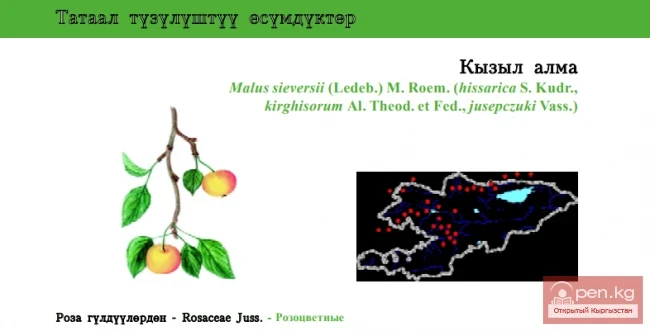
Sievers’s Apple-tree \ Kyzyl Alma \ Sievers’s Apple-tree
Sievers’s Apple-tree Status: LC category. A polymorphic species of the mountain-central Asian...

Litvinov's Rhodiola / Litvinov's Legend / Litvinov’s Rosewort
Rhodiola litwinowii Status: LC. A mosaic-distributed species, intensively used in agriculture....
Karakol. Terskey Ala-Too. Backcountry and Freeride in Kyrgyzstan.
Russian fans of extreme freeride and backcountry made an introductory video about Karakol and...
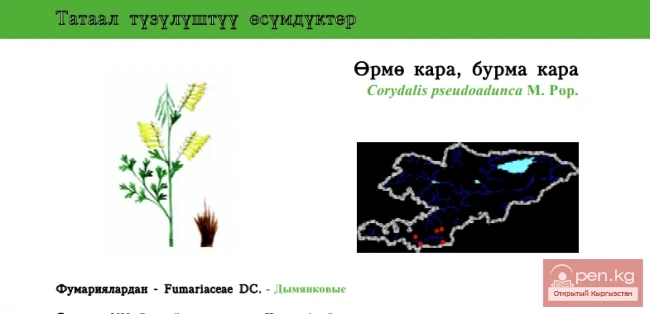
False Hooked Fumitory / Ormio kara, Burmio kara / Fumaria falcata
False Hooked Fumitory Status: VU. Endemic species of the Pamir-Alai....

Chicherin's Root Borer
Tschitscherin’s Root Borer Status: Category II (VUB2ab(iii)). A narrowly distributed rare species,...
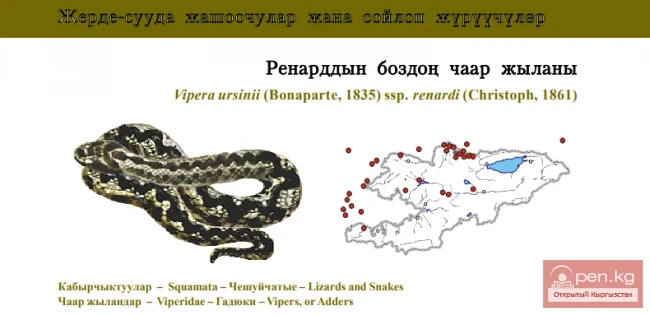
Renard's Meadow Viper
Renard’s Meadow Viper Status: Category VUA4bc. A subspecies of the south-west Palaearctic species,...
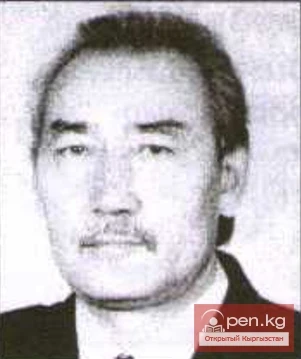
Kenesariyev Tashmanbet
Kenesariyev Tashmanbet (1949), Doctor of Historical Sciences (1998), Professor (2000) Kyrgyz. Born...

Rock Hits Performed by the Chamber Group of the Symphony Orchestra "résonance"
ROCK HITS performed by the chamber group of the SYMPHONY ORCHESTRA "résonance" In the...
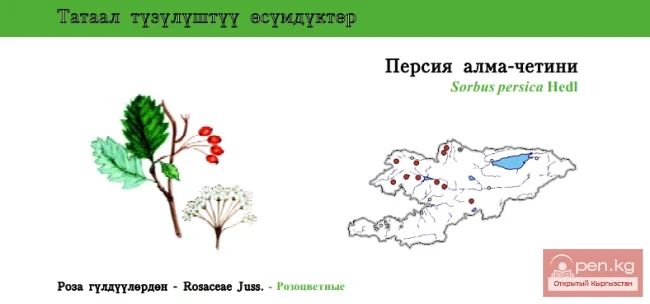
Persian Rowan \ Persia Alma-Chetini \ Persian Rowan
Persian Rowan Status: VU. Endemic, ornamental species....
50 Som - Kurmanjan Datka
Kurmanjan Datka — a Kyrgyz state and military leader, the chieftain and ruler of the Alai Kyrgyz...
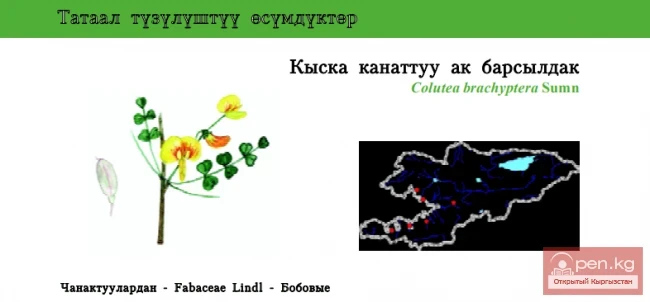
Short-winged Bladder-senna / Baibiche Chekey
Short-winged Bladder-senna Status: VU. One of three very rarely occurring species of this genus in...
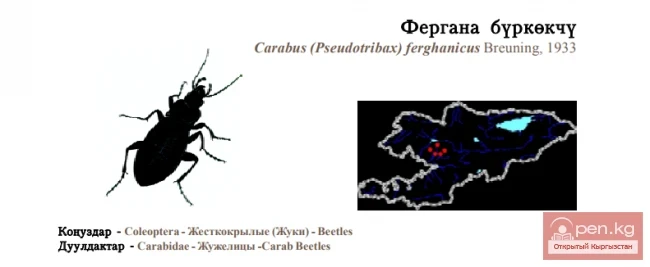
Fergana Sprayer / Fergana Burkyokchu / Fergana Ground Beetle
Fergana Ground Beetle Status: Category II (VUB1ab(iii)+2ab(iii)c(iii,iv); C2b). A narrowly...
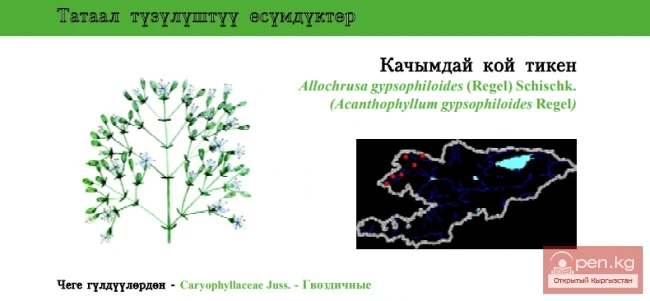
Spiny-leaved Allochrusa / Kachymday Koy Tiken / Gypsophila-like Allochrusa
Kolyuchelistnik kachimovidny Status: VU. A species with a rapidly reducing range. The roots of...
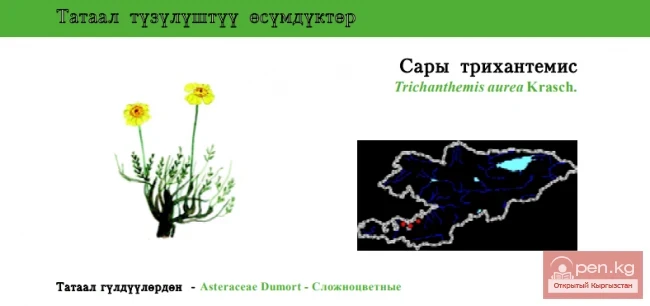
Hairy Flowering Golden / Yellow Trichanthemis / Golden Trichanthemis Centaury
Golden Trichanthemis Centaury Status: VU. A rare narrowly endemic species of the Alai Ridge, an...

Kosopolyan Turkestan / Turkestan Kosopoljanskia
Kosopoljanskaya Turkestanian Status: VU. One of the two endemic species of this genus found in...

Mazaris Longhorned Wasp / Mazaris Yellow Wasp / Kuznetzov’s Longicorn Wasp
Kuznetzov’s Longicorn Wasp Status: Category III (LR-nt). A naturally rare Central Asian species...
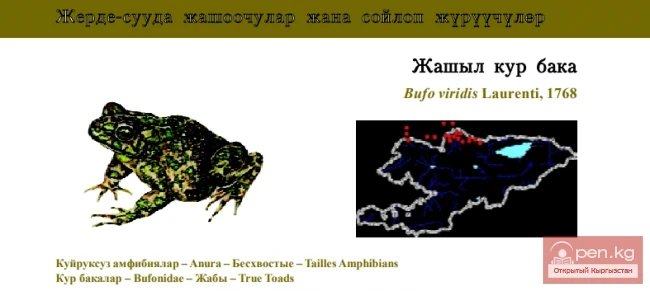
Central Asian Frog / Kyzyl Koltuk Frog / Middle Asia Wood, or Asiatic Brown, Frog
Central Asian Frog Status: Category VUB1ab(iv). A mosaic-distributed species with a disjunct and...
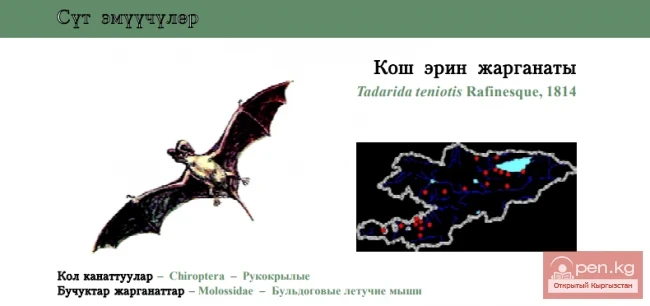
Broad-eared bat / Erin's bat / European Free-tailed bat
Broad-eared bat Status: Category VII, Lower Risk/least concerned, LR/lc....
Dance Flash Mob in Support of Social Justice in Kyrgyzstan
Popular dance teams Tumar, Let's Dance, and dancer Jan Voinov participated in a flashmob...
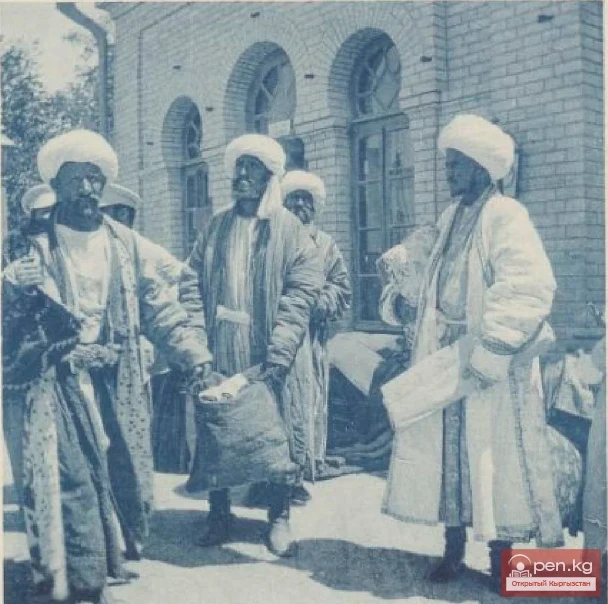
The Heterogeneous Social Composition of the Performance of the Peoples of Central Asia in May 1898.
The Heterogeneous Social Composition of the Uprising of the Peoples of Central Asia in May 1898 In...
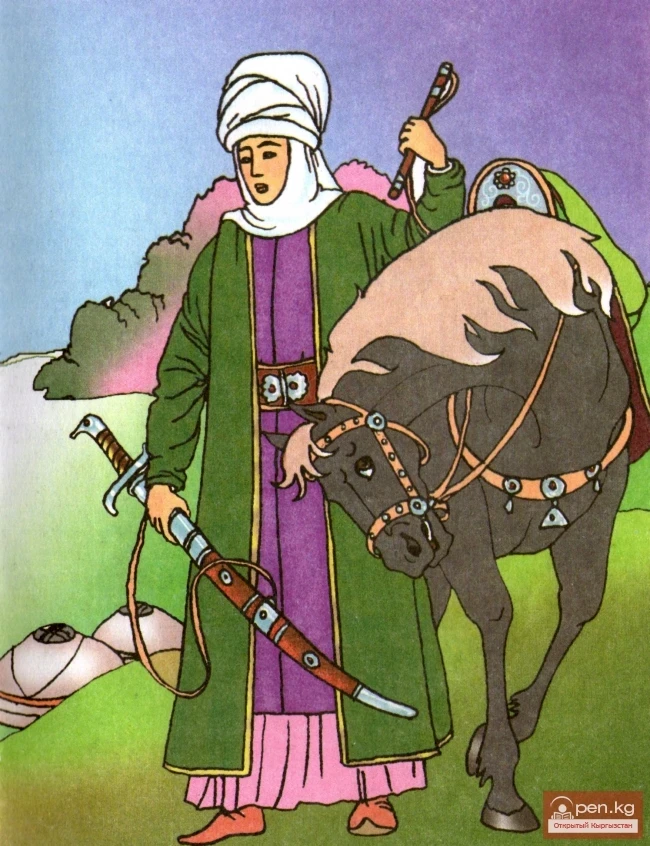
Kurmanjan Datka
Perhaps the brightest and most memorable heroine of Kyrgyz history is Kurmanjan Datka, the wife of...
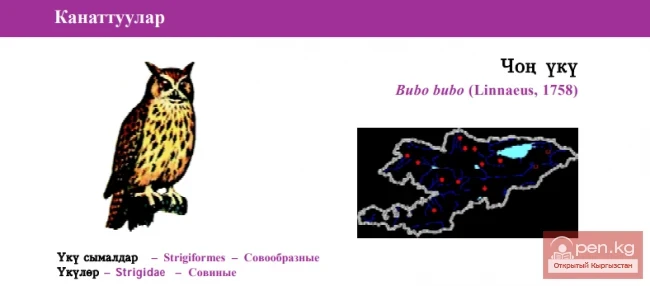
Eurasian Eagle-Owl / Chon Uku / Owl
Eurasian Eagle-Owl Status: VII, Least Concern, LC. In Kyrgyzstan, Bubo bubo hemachalanus Hume,...
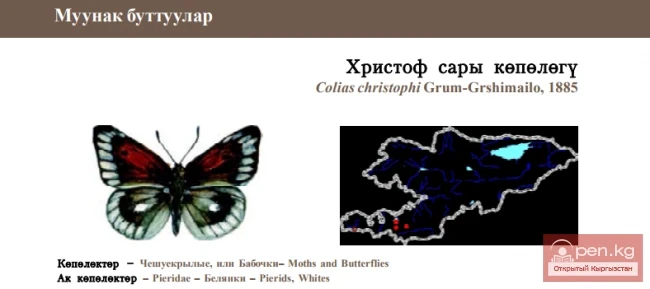
Christoph's Clouded Yellow
Christoph’s Clouded Yellow Status. Category II (VUBlac(v)+2ac(v); D2). Vulnerable species, a...
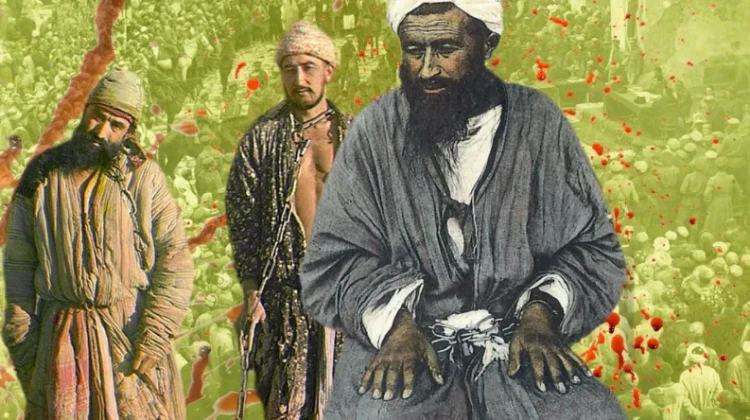
The Ishan from the Min-Tyube Village by the Nickname "Dukchi"
The uprising was led by a certain Magomed Ali Khalif Muhammad-Sabir Ogly - the ishan from the...
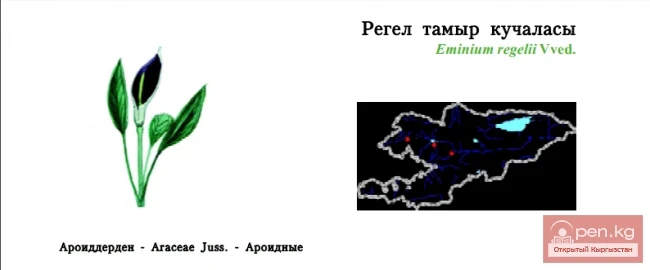
Regel's Eminium / Regel's Root Cluster / Regel's Eminium
Regel’s Eminium Status: VU. A rare endemic species of the Western Tien Shan....

Avdotka / Zhilkychi Chuldik \ Eurasian Stone Curlew
Avdotka Status: V category, Vulnerable, VU: R, A1. At the same time, according to information from...
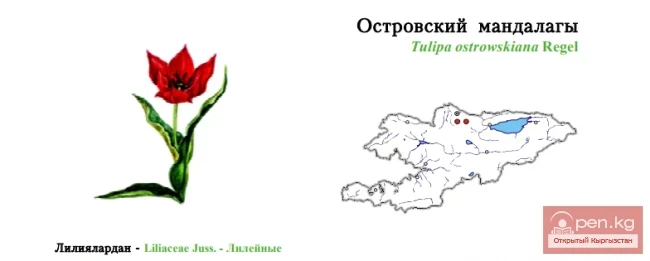
Ostrovski's Tulip / Ostrovski Mandala / Tulip of Ostrovski
Ostrovski’s Tulip Status: VU. A narrowly endemic species of the Kyrgyz and Zailiysky ranges. It...
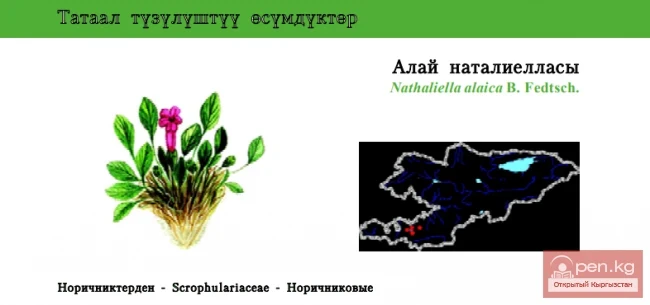
Nathaliella Alai / Alai Nathaliella / Nathaliella
Nathaliella alaica Status: CR B2ab(iii). A rare, endemic species of a monotypic genus of Himalayan...

Open Championship of Bishkek in Duathlon
On July 26, 2015, at 10:00, the Open Championship of Bishkek in Duathlon will take place in...

Greater Spotted Eagle \ Chaar Burkut \ Spotted Eagle
Greater Spotted Eagle Status: Category VI, Near Threatened, NT. One of 4 representatives of the...

Turkestan Smoke Plant / Turkestan Fumitory / Microfumitory
Turkestan fumitory Status: Category ENBlab(iii,iv). A representative of the monotypic [60,...
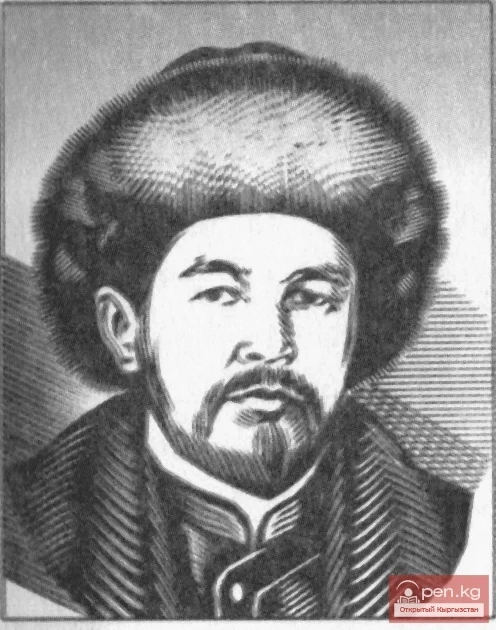
Alimbek Datka
The childhood and youth of Alymbek Datka were spent in Alai - a harsh but fabulously beautiful...
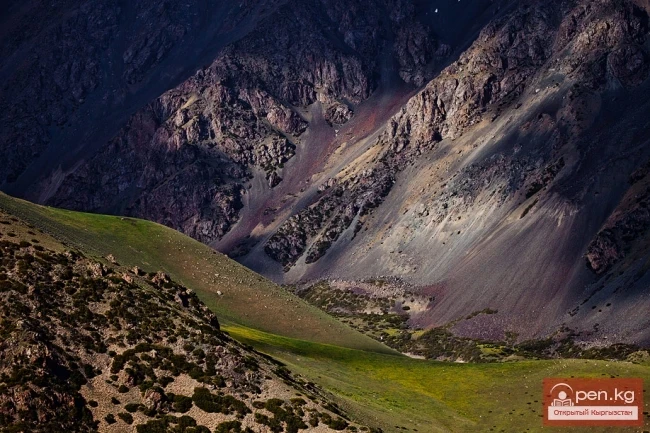
Adverse Natural Disastrous Processes
A specific form of natural conditions is represented by the internal adverse dangerous natural...
